Recently on Facebook I watched a couple of friends experience pain and not a small amount of sorrow when–after going through serious illnesses with their families–they were met with really appalling rudeness from friends and family members.
Not from internet trolls.
Friends.
Family.
Which leads me to wonder if the —-supportive responses like:
- People are HORRIBLE!!!
- What a B-!!!
- I’d never talk to that person again and you definitely shouldn’t!
- How rude!
and that sort if thing, are really appropriate either?
Now, if the rudeness came from a stranger or even from a vague acquaintance-type person, I’d be right in the middle of the dogpile. But friends? Family?
What the what?!
Maybe it’s because my son gets easily judgy. Maybe it’s because my head’s been hurting so bad for so long I’m just in a stupidly compassionate state, but I’m wondering if the rudeness comes not from cruelty but from lack of words.
To clarify:
My younger son, when he was very little, would get upset and speechless. Or he’d get into trouble for pushing another kid instead of “using his words”—which seemed odd because my kids are (surprise) nothing if not verbal.
When he got into these situations, I started asking, “would you like some words to use if this happens again?” He was always relieved, practiced the phrases we recommended, and his kerfuffles lessened.
When thinking about the visiting-a-chemo-patient-and-starting-by-greeting-them-with-“Gawd you look like hell!” stories I’m left wondering if this isn’t just someone being overwhelmed and not having access to the right words?
In America, as my husband who worked in Slovakia has mentioned, we keep the infirm, the deformed, the slow, and the ugly well-hidden. Look at how much we spend on making our teeth regular and white. Lots.
Anyway. I’m wondering if we aren’t just too far apart too much of the time. Too many screens and too few faces. I don’t know of many kids going to Cotillion or Ticktockers or etiquette classes. If we never see anyone ill, if we don’t grow up learning how to pay a sick visit or support someone after a death, then where do we get those words from? How are we supposed to know?
Y’got me.
But then I thought maybe we could crowd source a list of things to say when someone is hurting. Just to get over the hump. I’m an expert in open-mouth-insert-foot… But that doesn’t mean I don’t want to improve.
Have you ever been struck by someone’s grace under this kind of pressure?
What did they say?
Please share.
I’d love to learn!

 MamaO is Heather Ordover, author, designer, mother and knitter... not necessarily in that order. You can get posts from this blog sent directly to your inbox by signing up below, Follow her on Twitter and Like her on Facebook if you're feeling friendly-like.
MamaO is Heather Ordover, author, designer, mother and knitter... not necessarily in that order. You can get posts from this blog sent directly to your inbox by signing up below, Follow her on Twitter and Like her on Facebook if you're feeling friendly-like.















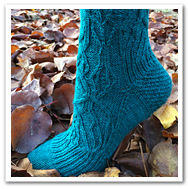
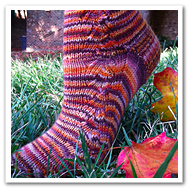
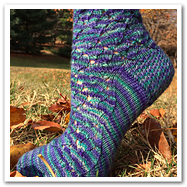
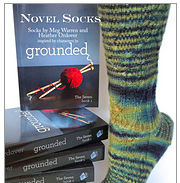
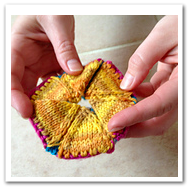
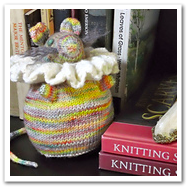


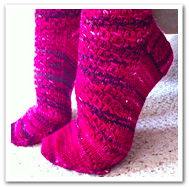
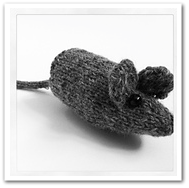
A few years after my mother passed, a family friend told me that my mother would have been very proud of me. These were perfect words from a very gracious woman.
I’ll be watching this thread as I often am at a loss for words in these types of situations. Thanks for the post.
I love that. What a lovely friend.
Heather! Your post really struck a chord with having asked myself, the same questions. We’ve experienced a lot of deep personal loss these last 3 years. Each time, I found myself retreating from the FaceBook world after an unexpectedly comment from a ‘friend’. Maybe I expected more from them because I thought they should know me better. “Hang in there” just wasn’t the hug my heart needed at the time of such grief. But, a friend choosing complete silence was even worse.
The most touching thing anyone said, a nearly complete stranger I met on Twitter, was “I’m never too busy to be here for you.” This, naturally brought me to my emotional knees but also touched my heart deeper than anything else. It doesn’t take much to let someone know we’re there for them. Saying we’re sorry for their loss can seem minuscule or understated compared to the emotional avalanche they must be dealing with. But not acknowledging their loss speaks even louder.
I know that death is an uncomfortable subject. It’s also an emotional journey for the supporting friend. Will it upset them if I say something? Will it hurt to speak the person’s name? The friend may be dealing with loss themselves … I sit here, now, struggling with my inability to attend a friend’s viewing because it’s too painful having recently lost my mom to leukemia. So, now I’m on the other side of that coin. Everyone handles loss differently. We know that. But, it’s more difficult to filter through that logic when we’re an emotional disaster zone.
Letting a mourning friend know that you care is always uncomfortable but crutical at a devestating moment. Remaining silent can be misread as non-interest, uncaring or cold and potentially destroy the relationship. It’s a fine line that we all have to walk. They’re a fractured soul, and we’re the bull in the china shop.
The best thing anyone did in my moment of grief was hug me. Didn’t speak a syllable! A genuine hug! That’s it! But it said so much without all the stupid, awkward, unnecessary words that always seem to muck thing up.
“I’m sorry for your loss”… Yeah. I don’t like that one but have defaulted there when I didn’t know what else to say.
I’ve gone to “I have no idea what could possibly help but I’m here and I care” when I had no idea what else to say.
And thank you for your story. It helps to see it from the inside.
Uh, dude I have the list! http://mixedmartialartsandcrafts.com/2013/11/say-friend-sick/
Personally, I find being told how “inspirational” or “brave” I am/was during chemo is really patronizing. The other trap well meaning but stupid people do is turn the sick into martyrs. I was suddenly put on this huge pedestal and expected to be….beatific? smiling? full of wisdom that I would be able to hand out while laying beautifully dying? Oh and passing out forgiveness and absolution to anyone and everyone who approached me.
I wrote an essay on how I *hated* reading “The Diary of Anne Frank” (one of my favorites) because she was so damn…optimistic. I felt so mad and disgusted and upset at the world and she didn’t really get too into that in her diary. That or they’ve been cut out because it doesn’t fit into the public perception of what she represents.
RIGHT! You DO have the list!
And yes. Ew. Martyr-ness. Ugh.
Oh I agree with your thoughts on being ‘inspirational’. That places too much on you and you feel like you aren’t allowed to have your bad days. It also turns your struggle into something about them.
That’s one reason I *hate* the MS Society slogan “I have MS but MS doesn’t have me” because it sounds like manufactured optimism and frankly…there are days MS down right kicks my arse. And I refuse to pretend it doesn’t. It reminds me of two things: 1. I don’t remember the book but I just remember the line about how affirmations are like shouting everything is ok to drown out that small voice saying it isn’t. 2.The movie Office Space. For those that have seen it, think ‘Synergy’.
And “it’s hard to be a gangsta”… or at least hard to be a fax machine.
😉
Maybe instead of discussing the dumb things people have said, we could share the good things people have said, and that will increase everyone’s vocabulary for these times.
For instance, when my grandfather died at the age of 90, the best thing anyone said to me was, “No matter how long we have our loved ones with us, it’s never long enough.”
I have borrowed that one.
That is a particularly kind thing to say. I’m going to remember that one.
A friend recently lost both parents: both in their late eighties, and his mother, sadly, was in an advanced state of dementia. He told me his mother didn’t recognize or even remember him. I told him, “that doesn’t matter; you remember her. I’m so sorry you’re hurting.”
One I heard from Dawn of Wolfe Farm Podcast is that “our memories keep the ones we have lost alive” and that really hit home for me because I lost my nana almost six years ago and this past Christmas I had to stop the car and cry like a child because my husband said”it doesn’t feel like Christmas” and without missing a beat I said “because nana isn’t here to curse us for buying more cherry candies” and it hit like a freight train that it had been years and I hadn’t talked about Christmas with nana. And as I cried my fill my husband said that same thing and asked to hear about our Christmas times with nana.
Also I have learned that just sitting with people while they talk things out is great as well. One of my gal pals has my number and has called to talk to me (in the wee hours I might add) while I sleep/chat with her about what ever and needs to get off her chest.
And another thing I have noticed of us fiber folk is that we think that with enough wool, will, and food we can fix just about ANYTHING!
But my personal favorite is to make them laugh somehow. Laughter is the best medicine yattah yattah, but really it’s hard to sad cry when you’re about to giggle snort a tissue up your nose.
wurster-weight on ravelry
More important than words is the human touch. There are times when I know I can simply say to the person: can I give you a hug? Other times, when that isn’t appropriate, I simply touch their hand or arm and often say: I’m sorry about what you are going through. Or: I know it’s hard, but I care.
Also, I am known as the person who always offers homemade chicken soup, it often isn’t accepted, but the gesture of offering food is very comforting.
This is far more light hearted than some of the truly sorrowful moments in life when one cares so much there aren’t words that can express it (I opt for the cheesy but clear ::hugs:: when the hug Linda described can’t work because it’s long distance). I was in a middle school classroom last week. A special needs student said, with a happy smile, “Are you pregnant??” Geez, I hope not, and her para-professional was appalled and about to say something. I just said “Nope, just chubby,” with a smile I hoped matched hers. I also think the receiver of well-intentioned but perhaps awkward or just plain wrong comments has a responsibility to try to ignore the rude and graciously accept the heartfelt comments.
Words that have resonated with me that were found in an essay on joy and not in any of the condolence cards I received after my daughter’s death: It hurts as much as it is worth.
Wow. You’re right. That’s simple but hits hard. Thank you!
This, shared on CraftLit, made me cry—in a good way: http://crafting-a-life.com/craftlit/?p=7560&cpage=1#comment-24307
I think, more than words, that food can help a lot. I was so grateful when I had my babies that the company my husband works for gave a $500 stipend for dining out while we made the transition to having a new little one. When we moved a friend gave us a gift certificate to a local restaurant we like. Any time you can take a little responsibility off the shoulders of a person who is grieving or going through a life change is giving them one more moment where they can focus on what is going on and work through that process. I think actions are best. Saying things like “If you need anything, let me know” actually means that the person has to think about what they could have you do. It’s nice to say, but not actually helpful. Whereas something like “here is this casserole I made” or “hey, can I take the kids to the park for an hour” can actually be a real life saver.
Holy smoke, yes. I remember the “let me know if I can help” didn’t help at all… and I know I’ve ABSOLUTELY been guilty of this when I didn’t want to be “pushy”.
But I think you’re right–removing anything that folks who are grieving (or dealing with a new baby–which can push you to grieve the life you just lost depending on hormones) have to think about–beyond their grief–is a really nice thing. Thank you for that!
Wow Heather. You are always so good at getting me to think. I have dealt with this on several occasions: miscarriage, my son was severely injured (and has fully recovered), and most recently my diagnosis of a chronic illness.
I talk about my Multiple Sclerosis a lot because I have made it somewhat of a personal crusade to educate people about a common but misunderstood illness. What I hear most often from people is ‘I’m sorry.” and to be honest, I never know how to respond to that. At times, in my snarkier moments, I am tempted to say, “What are you sorry for? You didn’t make me sick?” I think a better thing for people to say is “I am sorry you are going through this.” It is less awkward, more sincere and something I can respond to.
Another thing is not to say “Is there anything I can do to help?” Yeah, there is a lot, but most of us won’t ask. We don’t know what you mean by help, or if you are just being polite. Offer up something specific, that you can and are willing to do. “Can I bring you some dinner next week?” “How about I take the kids for the afternoon on Saturday so you can rest.” “The boys and I would like to come by and rake your yard for the leaf pick up.” Those are far more appreciated than having the responsibility of coming up with something for them to do. Especially if you are deep in grief or in the midst of a stressful medical mess. And if you are like me, you are reluctant to ask for help…even if we really, *really* need it.
Just some thoughts from a spoonie who has had her share of crappy situations.
Also when I reach out to someone going through something, I usually tell them that I am available if they need to talk or if they need a distraction so they don’t have to think about it. You’d be surprised at how many people take me up on the second. Sometimes a moment of frivolity without the pressure of it all is the best help you can give someone. I tell them that they get to lay out the parameters of if the situation is taboo or they need to unload. And then I respect their wishes.
What EXCELLENT ideas. I think I’m going to have to mention these on the podcast!
😉